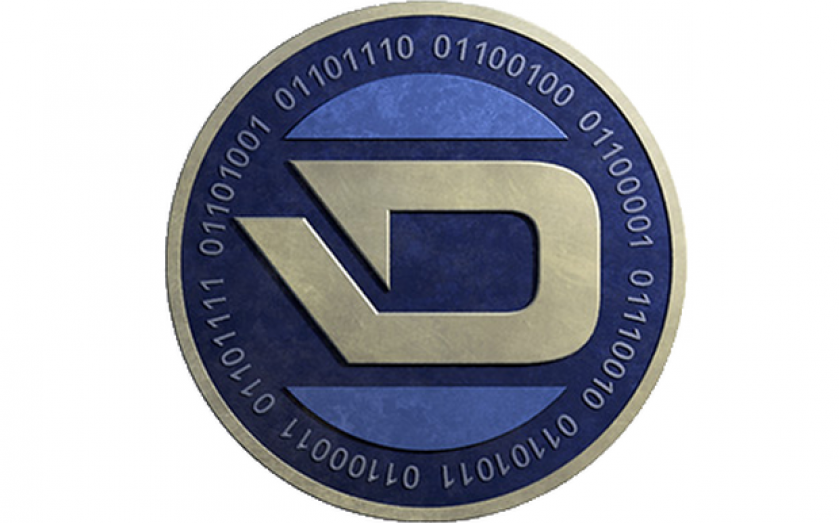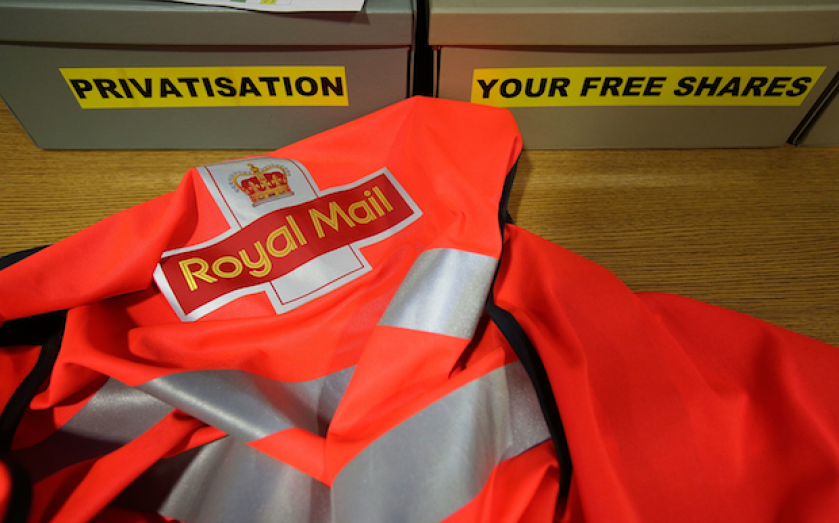Quintain returns to profitability with strong focus on London

Quintain Estates has returned to profitability, supported by the opening of the London Designer Outlet and sales of new homes at Wembley Park. The first release of 73 apartments have been sold for an average price of £570 per square foot.
Today's results mark the first time the company has been back in the black since the credit crisis of several years ago. A key financial highlight for Quintain was the slashing of net debt, from £444m to £136m.
The London Designer Outlet has been a key driver of footfall, with 2.5m people visiting the outlet since October. The outlet boasts 20 bars and restaurants, which benefit from their proximity to Wembley stadium.
However, profit before tax were down by £4m to £4.2m for the year ended 31 March. The company recently became the latest developer to move into the private rental sector, after forming a joint to build 475 homes for rent in Wembley. Quintain has hold consentas to deliver 5,000 new homes.
In April, the company partnered with Swiss private equity group and family office Keystone to deliver the next 306,000 square feet phase of homes at Wembley Park, which will comprise seven buildings.
Under the deal, the 50:50 joint venture will pay Quintain £32m for the 2.5 acre plot and associated infrastructure. Two of the buildings will be bought by Quintain once they are developed, who will then manage them and rent them out.
"We now have a strong financial position and a clear focus on London. The early price indications at Wembley give us confidence to accelerate development and we are now well placed to maximise value for shareholders", said chief executive Maxewll James.
Several developers have moved into the sector to meet demand for more affordable homes, including Grainger as well as Delancey and Qatari Diar at the Olympic Village.
Quintain returns to profitability with strong focus on London

Quintain Estates has returned to profitability, supported by the opening of the London Designer Outlet and sales of new homes at Wembley Park. The first release of 73 apartments have been sold for an average price of £570 per square foot.
Today's results mark the first time the company has been back in the black since the credit crisis of several years ago. A key financial highlight for Quintain was the slashing of net debt, from £444m to £136m.
The London Designer Outlet has been a key driver of footfall, with 2.5m people visiting the outlet since October. The outlet boasts 20 bars and restaurants, which benefit from their proximity to Wembley stadium.
However, profit before tax were down by £4m to £4.2m for the year ended 31 March. The company recently became the latest developer to move into the private rental sector, after forming a joint to build 475 homes for rent in Wembley. Quintain has hold consentas to deliver 5,000 new homes.
In April, the company partnered with Swiss private equity group and family office Keystone to deliver the next 306,000 square feet phase of homes at Wembley Park, which will comprise seven buildings.
Under the deal, the 50:50 joint venture will pay Quintain £32m for the 2.5 acre plot and associated infrastructure. Two of the buildings will be bought by Quintain once they are developed, who will then manage them and rent them out.
"We now have a strong financial position and a clear focus on London. The early price indications at Wembley give us confidence to accelerate development and we are now well placed to maximise value for shareholders", said chief executive Maxewll James.
Several developers have moved into the sector to meet demand for more affordable homes, including Grainger as well as Delancey and Qatari Diar at the Olympic Village.
Asian markets climb higher as hope for global recovery strengthens

Asian markets are on the rise this morning after positive data from the US gave investors confidence in the strength of the global recovery, while events in Thailand and Ukraine ensured a note of caution.
The previous session revealed that US factory output growth rose it to its fastest pace in three years, while China's factory performance enjoyed its best performance in five months.
In April, US home resales rose and the number of properties on the market climbed to its highest point in almost two years. However, investors are unlikely to become too optimistic, while concerns of China's slowdown remain prevalent.
Thailand's military seized power in a bloodless coup yesterday, with general Prayuth Chan-Ocha saying the military had to restore order and implement necessary reforms.
Meanwhile, Ukraine has seen some the deadly fighting yet, with 14 Ukrainian soldiers reported dead. The attack took place at a checkpoint in eastern Ukraine only days before the country's presidential election.
Russia may be withdrawing some of its troops from the Ukrainian border, in a move that would likely relieve some of the fears surrounding Russia's intentions toward Ukraine.
Darkcoin surges ahead of Dogecoin to become fourth biggest cryptocurrency

The good news just keeps on coming for privacy-centered cryptocurrency Darkcoin. In just 24 hours the digital currency has jumped 30 per cent to $10 per Darkcoin.
Darkcoin's market cap has raced ahead of peers such as Dogecoin, reaching $43.2m. Darkcoin is now within striking distance of fellow virtual currency Peercoin, ranking as the world's fourth largest cryptocurrency.
The 32-year old founder of Darkcoin Evan Duffield, said the massive rise could be due to the way some Darkcoiners are rewarded for using their computers to act as coordinators for the currency's payment system, Darksend.
Anyone can turn their computer into a coordinator, so long as they can prove they've paid 1,000 Darkcoins. Known as "master nodes", they receive 10 per cent of the new coins they add to the network. 170 master nodes have been created in the last month, according to Duffield.
However, the major appeal of Darkcoin, as opposed to the more widely known cryptocurrency Bitcoin, is its focus on anonymity. Bitcoin was popularly believed to be anonymous but every transaction is recorded on a public ledger.
Duffield argues that making payments with Bitcoin is equivalent to leaving your checking account open in your browser and everyone on the internet can see what you bought.
Darkcoin conceals its users identity by mixing up users individual transactions with those of two additional users. The cryptocurrency has been booming in the wake of an update to the Darksend system.
Named release candidate two (RC2) users of Darksend have their payments split into smaller denominations and pooled with other users. Those receiving payment draw Darkcoin from the pools until they have received the correct amount. Those viewing the blockchain will be able to see payments being made but will be none the wiser as to who paid who.
Responding to arguments that the price spike is a speculative bubble, Bitcoin consultant and Darkcoin enthusiast Kristov Atlas, told Wired "There’s some solid indications the market price is currently based on the fundamental value of the coin.”
He points to April's price spike, which occurred after Darksend was switched on for real transactions. However, only a handful of retailers accept in the insurgent digital currency.
Darkcoin surges ahead of Dogecoin to become fourth biggest cryptocurrency

The good news just keeps on coming for privacy-centered cryptocurrency Darkcoin. In just 24 hours the digital currency has jumped 30 per cent to $10 per Darkcoin.
Darkcoin's market cap has raced ahead of peers such as Dogecoin, reaching $43.2m. Darkcoin is now within striking distance of fellow virtual currency Peercoin, ranking as the world's fourth largest cryptocurrency.
The 32-year old founder of Darkcoin Evan Duffield, said the massive rise could be due to the way some Darkcoiners are rewarded for using their computers to act as coordinators for the currency's payment system, Darksend.
Anyone can turn their computer into a coordinator, so long as they can prove they've paid 1,000 Darkcoins. Known as "master nodes", they receive 10 per cent of the new coins they add to the network. 170 master nodes have been created in the last month, according to Duffield.
However, the major appeal of Darkcoin, as opposed to the more widely known cryptocurrency Bitcoin, is its focus on anonymity. Bitcoin was popularly believed to be anonymous but every transaction is recorded on a public ledger.
Duffield argues that making payments with Bitcoin is equivalent to leaving your checking account open in your browser and everyone on the internet can see what you bought.
Darkcoin conceals its users identity by mixing up users individual transactions with those of two additional users. The cryptocurrency has been booming in the wake of an update to the Darksend system.
Named release candidate two (RC2) users of Darksend have their payments split into smaller denominations and pooled with other users. Those receiving payment draw Darkcoin from the pools until they have received the correct amount. Those viewing the blockchain will be able to see payments being made but will be none the wiser as to who paid who.
Responding to arguments that the price spike is a speculative bubble, Bitcoin consultant and Darkcoin enthusiast Kristov Atlas, told Wired "There’s some solid indications the market price is currently based on the fundamental value of the coin.”
He points to April's price spike, which occurred after Darksend was switched on for real transactions. However, only a handful of retailers accept in the insurgent digital currency.
Why today’s results may be as good it gets for Royal Mail

Shares in the recently-privatised Royal Mail have fallen by six per cent after the company warned it may never reach its targeted profit margin.
At first glance Royal Mail's results appear to be encouraging, with reported profit before tax jumping by 83 per cent, to £1.6bn. Net debt is also down a hefty 39 per cent.
Revenue rose two per cent, to £9.5bn – in line with its expectations – and reported earnings per share are at 127p, from 21p a year earlier.
However, today's preliminary numbers highlight what many analysts fear are the company's two main vulnerabilities: dependence on parcel growth and falling letter volumes.
Parcels now comprise the largest part of Royal Mail's business, while letter revenues have experienced steady declines.
This proves a challenge for the FTSE 100 company, as the parcel market is becoming increasingly competitive. DPD is introducing its new Predict service, which gives customers a one hour delivery slot and provides real-time 15 minute countdown to delivery so customers know exactly when their item will arrive.
UK mail has also upped its game, offering a one hour delivery slot. Today's results, showing a slowdown in parcel growth, will add to the company's concerns. However, Britain's oldest postal service is moving with the times.
Yesterday, Royal Mail announced it will be trialling delivering parcel deliveries on Sundays. Later this summer, it’ll open about 100 offices on Sunday afternoons for customers to pick up parcels.
It’ll also pilot delivering parcels within the M25; and from June, Parcelforce Worldwide, its express delivery service, will offer Sunday service to retailers.
But this may be too little, too late, with DPD Hermes, UK Mail and Amazon Logistics Service already set to launch Sunday deliveries during 2014 and RICO Logistics offering sameday evening delivery.
Meanwhile, parcel growth for Royal Mail has suffered a sharp slowdown. Furthermore, there could be even more dangers for Royal Mail's the parcel business as UK capacity continues to expand at an ever increasing rate.
A host of operators are ramping up capacity hubs, depots and branches. From 2014 to 2015 DPD alone is planning to add about 10 per cent to the industry depot capacity and many others such as City Link, Hermes and UK Mail are making substantial investments.
DPD's new hub, set to become operational in 2015, can handle 70,000 parcels an hour and is fully automated. Should the new hub handle 70,000 parcels per hour, 300 days a year at just 10 hours per day, capacity would increase by around 200m parcels a year, compared with total parcel deliveries in 2013 of 2bn.
The situation is somewhat bleaker on the letter side of the business. Investment bank Espirito has already noted that Royal Mail's company's valuation is particularly vulnerable to falling letter revenues, raising concerns that if current trends continue "the rate of decline in letter volumes will become unmanageable".
TNT Post UK is also giving Royal Mail a run for its money, handling over 3.5bn letters upstream. The completion of TNT's E2E rollout could see the company deliver 1.6bn letters itself, hitting Royal Mail revenues by as much as £320m a year.
The UK now ranks as the world's number two in terms of postal freedom. All this is great news for consumers but presents a challenging environment for Britain's oldest and most established postal service.
Mothercare share price jumps as profits beat expectations

Shares in baby goods retailer Mothercare have surged by 15 per cent after the company reported earnings above expectations.
Mothercare's lenders, HSBC and Barclays, also agreed to enlarge the company's debt facility to £100m – an increase of £10m.
Profit before tax jumped 61 per cent to £9.5m for the year ended 29 March. 35 loss-making stores were closed, while international sales rose 9.3 per cent. However, like-for-like sales in the UK fell by 1.9 per cent.
"In the UK, we have continued to close loss-making stores and operate a leaner business. The market remains competitive and our teams are working hard to deliver an improved product range that offers even better value for money for our customers and an improved multi-channel service", said Mothercare chairman, Alan Parker.
In February, Simon Calver resigned as Mothercare chief executive six weeks after the company gave a significant profit warning. Calver had been in the role for two years after serving as head of online movie rental service Lovefilm.
Mothercare has attempted to cut costs, revamp underperforming stores and grow its online platform, but has struggled in the face of stiff competition from supermarkets and online rivals such as Morrisons’ Kiddicare business.
The company is aiming to be back in the black by 2016.
Developing markets drive SABMiller profit rise

Brewer SABMiller has enjoyed a rise in profit before tax of three per cent to $4.8bn for the year ended 31 March.
The maker of Fosters and Peroni saw lager volumes rise by one per cent, with expansion in Latin America, Africa and Asia Pacific partially offset by declines in Europe and North America. The company's full year dividend rose by four per cent per share to $1.05 cents.
However, revenue for the FTSE 100 company fell by four per cent to $22.3bn.
"As we look ahead, we will continue to innovate and rejuvenate our products, build on our position in growth markets, and increase the efficiency of our operations. With this approach I believe we are well placed to continue to deliver strong returns to shareholders", said chief executive Alan Clark.
EBITA in Latin America, North America and and Africa grew by four per cent, eight per cent and 12 per cent respectively. EBITA in Europe was down by 10 per cent, with Poland leading volume declines. However, there were some improvements with respect to lager in the UK, the Netherlands, Romania and Slovakia.
In Africa, mainstream brands enjoyed a strong performance, while Castle Lite expanded the premium segment.
SABMiller expect trading conditions to remain broadly unchanged from the previous year, with developing markets driving growth.
Developing markets drive SABMiller profit rise

Brewer SABMiller has enjoyed a rise in profit before tax of three per cent to $4.8bn for the year ended 31 March.
The maker of Fosters and Peroni saw lager volumes rise by one per cent, with expansion in Latin America, Africa and Asia Pacific partially offset by declines in Europe and North America. The company's full year dividend rose by four per cent per share to $1.05 cents.
However, revenue for the FTSE 100 company fell by four per cent to $22.3bn.
"As we look ahead, we will continue to innovate and rejuvenate our products, build on our position in growth markets, and increase the efficiency of our operations. With this approach I believe we are well placed to continue to deliver strong returns to shareholders", said chief executive Alan Clark.
EBITA in Latin America, North America and and Africa grew by four per cent, eight per cent and 12 per cent respectively. EBITA in Europe was down by 10 per cent, with Poland leading volume declines. However, there were some improvements with respect to lager in the UK, the Netherlands, Romania and Slovakia.
In Africa, mainstream brands enjoyed a strong performance, while Castle Lite expanded the premium segment.
SABMiller expect trading conditions to remain broadly unchanged from the previous year, with developing markets driving growth.
FTSE up despite regulatory probes
The FTSE 100 was up in early trading, rising 0.4 per cent to break through the important 5,900 barrier, with some of the main share price moves driven by regulatory investigations.
Rolls-Royce fell heavily after admitting that it was co-operating with the Serious Fraud Office on a probe into potential corruption and bribery at its Asian intermediaries.
The company warned that outcomes “could include the prosecution of individuals and of the company” and investors took flight, driving the share price down 2.7 per cent to £8.89.
On the flipside, Standard Chartered rose as shareholders were pleased by reports that the firm will pay $330m to settle a dispute over its alleged dealings with Iran. Shares were up 2.3 per cent.
But stoic HSBC investors were non-plussed by reports that the bank may have to pay a $1.8bn fine over money-laundering lapses, with the share price largely unchanged.
Elsewhere investors waited for the final Bank of England and European Central Bank monetary policy decisions of the year.
There was also renewed hope that politicians in Washington DC can avoid the so-called “fiscal cliff” of year-end tax hikes and spending cuts after President Obama said a deal was possible within a week. His comments boosted stocks on Wall Street and in Asia.
In London miners led the upwards charge, with Antofagasta topping the leaderboard with a 3.1 per cent increase. Vedanta and Evraz were closed behind. The entire resources sector has been boosted this week by encouraging news from China about an attempt to stimulate growth in the fast-growing economy.
Defensive stocks fell back, while accountancy software firm Sage continued yesterday’s downward slide.
In the FTSE 250 retailer Dixons was up five per cent, while JD Sports fell 4.6 per cent.
In Asia the Nikkei was up 0.8 per cent and the Hang Seng down 0.1 per cent.